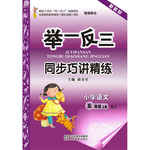题目内容
Sitting in the shade on this hot day ________ good
- A.feels
- B.looks
- C.keeps
- D.remains
A
feel在这里用作连系动词,表示的意思是:给人一种……的感觉。
feel在这里用作连系动词,表示的意思是:给人一种……的感觉。

练习册系列答案
 举一反三同步巧讲精练系列答案
举一反三同步巧讲精练系列答案 口算与应用题卡系列答案
口算与应用题卡系列答案 名师点睛字词句段篇系列答案
名师点睛字词句段篇系列答案
相关题目
题目内容

 举一反三同步巧讲精练系列答案
举一反三同步巧讲精练系列答案 口算与应用题卡系列答案
口算与应用题卡系列答案 名师点睛字词句段篇系列答案
名师点睛字词句段篇系列答案